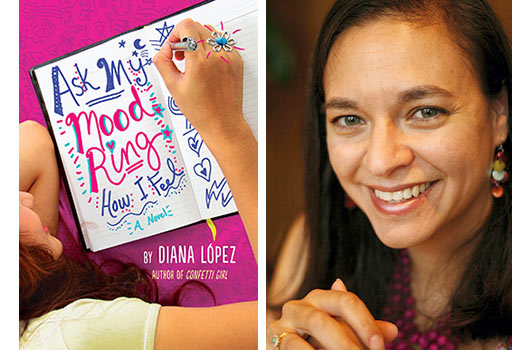
“I feel I need to be perfect. I was like this pre-baby, but something about having a child makes you go into overdrive on the perfection.”
“I want so badly to be everything to my child. I feel like I should take her out every day and do something fun. When I don’t, I feel like a failure. When I tend to do something else that needs to be done—like work or even taking time out to read a magazine—I also feel like a failure; I feel like I’m neglecting her.”
“As a mother, I try to do everything right—but I feel like I’m doing everything wrong.”
Sound familiar? Women in general, and mothers in particular, are so fixed on being everything to their children and families that it’s taking an emotional toll—and that’s not good for the moms or their kids.
These moms would do well to acquaint themselves with a fellow named D.W. Winnicott, and the phenonemenal René Syler, and a concept known as “the good enough mother.” Quite simply, the “good enough mother” is a mother who’s not close to perfect—but she and her family are doing just fine.
Read Related: 5 Bible Verses to Help You Be a Better Mother
THE THEORY OF THE “GOOD ENOUGH MOTHER”
D.W. Winnicott was a psychoanalyst, psychiatrist, and pediatrician who conceptualized the idea of the “good enough mother” in the 1950’s, the same decade that television brought us the unattainable perfection of June Cleaver in Leave it to Beaver. His professional writings are incredibly insightful, but can be hard to decipher to anyone who doesn’t have a degree in psychology. But his theories can help mothers who are feeling the pressure to be perfect.
“Parents may find relief in that they are not expected to immediately respond to every need or prevent their child from experiencing anxiety,” explains Dr. Laura Reigada, a clinical psychologist and Assistant Professor of Psychology at Brooklyn College of the City University of New York. “Rather, it is recommended that parents gradually encourage their infant to explore while allowing emotions to be experienced. In doing so, the child develops a sense of identify and begins to self-regulate emotion.” But Dr. Reigada notes that “a drawback of this theory is in its ambiguity and simplicity. It is unclear how to create a balance between responding to needs and cultivating exploration.” In other words, how do we take this potentially reassuring theory and apply to our own anxieties about being the perfect mom?
Fast forward 50 years to 2007. One woman who didn’t have trouble coming up with answer and works to help other moms learn self-acceptance is former reporter and Early Show anchor René Syler. She published her first book, Good Enough Mother: The Perfectly Imperfect Book of Parenting, which led to her website, goodenoughmother.com.
“Good Enough Mother was borne of my goal to help women feel better about the job they were doing as wives and mothers,” says Syler, who also has a degree in psychology. “I had a number of friends—and me too—who were buying into the notion that they had to provide a perfect childhood for their kids. And it struck me one day, as I was doing 30 things and not any one of them particularly well, that perfection is completely unattainable.”
START WITH A QUESTION: “WHY?”
The result is an all-encompassing, supportive parenting resource for mothers who are coming to terms with the idea that it’s okay to be imperfect. To start that process, they might want to ask themselves where that pressure is coming from. “I would start by asking why,” says Syler. “Why are they so desperate to be perfect, especially since we know that is not realistic. Are they doing the thing I abhor, engaging in ‘mompetition’? Are they parenting for people who are NOT living in their house? If so, I would say, ‘STOP.IT.RIGHT.NOW!’ Seriously, we all need to get a grip, and concentrate on the stuff that really matters, rather than what your neighbors/mother-in-law/moms-in-playgroup say.”
So what’s an example of the good enough mother? “Um, besides breakfast for dinner?” Asks Syler. “Besides letting your kids wear what they want (as long as it’s age and weather appropriate)? Besides subscribing the concept of ‘natural consequences’? Those are but a few.”
Syler recalls a day not too long ago when her teenage son Cole wanted to wear only a sweatshirt on a chilly winter day, instead of a coat. Syler’s husband tried to push the point, which Syler felt was unnecessary. “The kid is 13-years-old, not three,” she explains. “He knows when he’s cold and will put a coat on. If he gets a cold, we will nurse him to health, explaining that he needs to take better care of himself. But guess what will happen after the sniffles subside? Cole won’t do that again, will he?” This relates directly to Winnicott’s theory that a mother cannot—and should not try to—protect her child from every possible negative experience.
Read Related: How to Be a Better Mother: Put Down Your Smartphone
TAKING CARE OF YOURSELF, TRUSTING YOURSELF
Many mothers feel that to take care of themselves is a selfish impulse that will take away from the well-being of their children. But actually, it’s the opposite. “Being a healthy mother, taking care of oneself, is very important in the care of our children,” says Dr. Reigada. Syler agrees. Embracing the title of good enough mother, explains Syler, “means cutting yourself some slack, understanding that it is okay for you to take some time for yourself, to take yourself OFF the bottom of the To-Do list and to truly understand that by taking care of yourself, you ARE taking care of your family.”
With some practice, you may just start leaving your impossible standards of perfection behind. “I do think it gets easier as we have a few ‘mothering moments’ under our belts and begin to trust ourselves more,” says Syler. And that includes letting go of what other people may think. “Because when we trust that we know what we are doing, we’ll care less about people whose opinions don’t really matter,” says Syler. What would she say to the mother who worries about getting her kid outdoors every day? “I think it all boils down to perspective,” she muses. “Will your kid notice if you don’t go to the park everyday? Will the mommy-clique? Maybe. Should you care? No.”
It’s a process with many steps, but well worth it. Trusting ourselves as mothers—and learning not to care so much about what other people think—will lead to self-acceptance. Accepting—and loving—ourselves as imperfect is the key to feeling good about the job at which we’re working so hard. Feeling good about ourselves as moms—and taking care of ourselves—is good for the whole family. And that’s what being good enough is all about.











